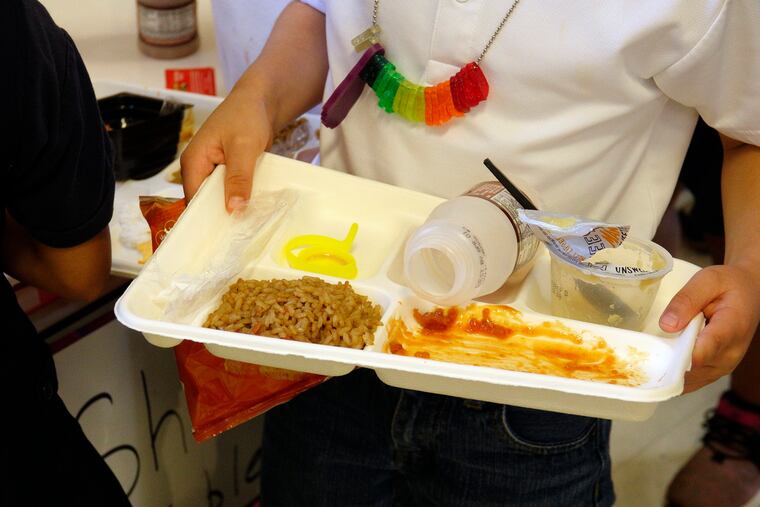Cherry Hill’s school lunch debacle can serve a purpose | Editorial
Cherry Hill has taken a beating, especially on social media, for the way it has handled the issue of collecting overdue lunch money from families of students. But the ugliness of the uproar could ease after a new policy goes into effect.

With presidential candidates, a governor, and even the BBC weighing in on Cherry Hill’s school lunch controversy, a suburban township long known regionally for its mall is on the global map, and not in a good way. But the firestorm the Cherry Hill school board ignited while trying to work within a state requirement to collect overdue lunch money should also spark a larger conversation about the role of school nutrition programs in lessening food insecurity as well as about the tension between public and private responsibilities for the well-being of children.
Cherry Hill has been caricatured if not demonized on social media as a white-privileged enclave cluelessly trying to force poor kids to eat stigmatizing sandwiches. In reality, the township is a mixed-income, multicultural community of 71,000 where nonwhite people, many of them immigrants, make up more than one-quarter of the population and just under half of the school district’s enrollment of 11,000 students — about 20% of whom qualify for free or reduced-price lunches.
Meanwhile, three members of the nine-seat school board are people of color, including the president. Overheated accusations against them on Facebook notwithstanding, they do not appear to be motivated by a lust for political power, let alone a desire to “shame” students. And a majority of the 340 students whose accounts collectively were more than $14,000 overdue at the end of the 2018-19 school year were from families who either had not applied, or didn’t qualify, for reduced-price lunches.
» READ MORE: Cherry Hill school district rejects a Philly businessman’s offer to wipe out students’ lunch debts
In any case, the board and the administration should have done a far better job making clear why the district sought to pursue tougher measures to resolve overdue student lunch accounts; why an unappealing substitute lunch for nonpayers was proposed; and why Cherry Hill turned down a philanthropist’s offer to clear the debt (the board wanted a more lasting solution). That move and others may well have made sense inside the boardroom but seemed bewildering, even inexplicable, to many inside and outside Cherry Hill.
As The Inquirer’s Melanie Burney reported, the board recently adopted a fair-minded approach: Every student in a lunch line in a Cherry Hill public school will get a standard meal, regardless of account status. The policy establishes extensive notification, counseling, and other services for families in special circumstances or in arrears. But the policy also includes a provision to bar students whose accounts are seriously delinquent from participating in proms or other activities.
“That would only be a last resort,” superintendent Joseph Meloche explained. “Nobody wants to revoke privileges.” Those nuances were lost on news aggregators like boingboing.net, where a cartoonish photo illustration of someone being guillotined outside Cherry Hill High School East accompanied a recent story about the purported persecution of hungry children.
Needless to say there’s nothing amusing about kids without enough to eat; public schools have a responsibility to them. But so do parents. If families need help paying for their children’s lunches, Cherry Hill should make that help available. But parents who can pay should do so. If they don’t, there still ought to be no shame falling on their kids.